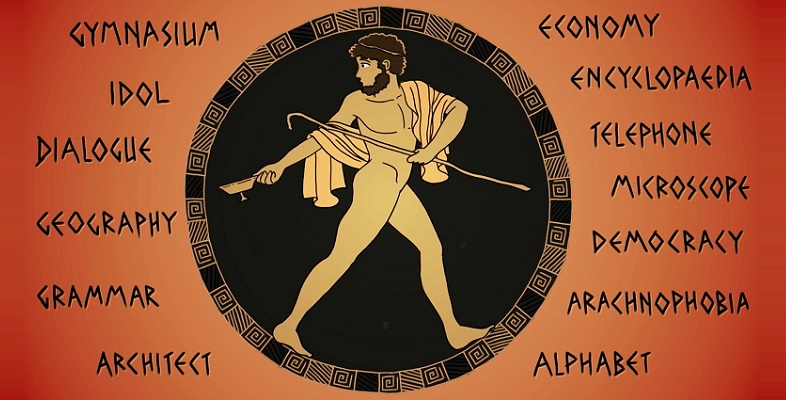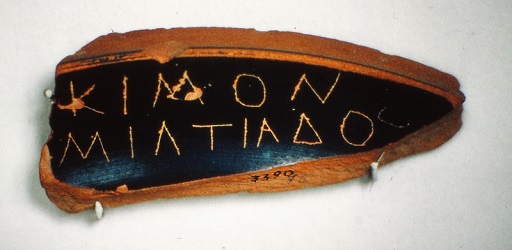2 More letters
Some letters look unfamiliar but have an English counterpart. For instance, you can think of ‘delta’ (δ, upper case Δ) as an English ‘d’, or ‘pi’ (π, upper case Π) as an English ‘p’.
Look at the name of the Greek god ‘Poseidon’, which contains a combination of letters that might look both familiar and strange:
Ποσειδων (= Poseidon)
Although Ποσειδων is trickier to decipher than Ζευς, there is still a one-to-one correspondence between eight Greek letters and eight English ones.
Activity 3 Ostrakon continued
The second line of the ostrakon seen in Activity 2 contains the name of the politician’s father. Can you identify all the letters and try to pronounce the name? (Note that you can ignore the faint final mark on the right-hand side which looks like a ‘u’ or a ‘c’ on its side: this is just an additional scratch rather than a letter.)
Discussion
The word is ‘Miltiado’ (Μιλτιαδο), a form of the Greek name Miltiades (Μιλτιαδης). The ostrakon reads ‘Kimon, son of Miltiades’ (literally, ‘Kimon, of Miltiades’).
Miltiades was an Athenian general at the battle of Marathon, which took place on the shore near Athens against a Persian expeditionary force in 490 BCE. He is mentioned a number of times by the Greek historian Herodotus in his Histories, composed around 430 BCE.

